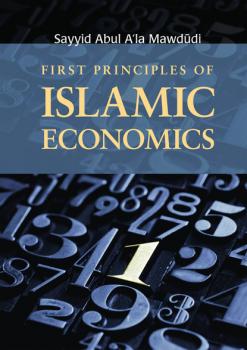Sayyid Abul A'la Mawdudi
Список книг автора Sayyid Abul A'la MawdudiTowards Understanding the Qur'an
An immense understanding of the Qur’an is offered here, a vast treasure of knowledge and deep insight and a valuable exposition of some social, political, economic and legal teachings of the Qur’an. But what makes this work unique is that it presents the Qur’an as a book to be lived by. With thousands of notes, an introduction and comprehensive index.
Worship in Islam
Mawdudi was a leading Islamic thinker in the twentieth century. His works are notable for their aim to offer an Islamic way for all areas of personal and social life.This book present his thoughts on the central matter of worship’s role in Islam.It also sets out his holistic view of the Islamic system, highlighting Islam’s social, economic and political dimensions, which he argues has the capacity to resolve emergent issues and problems that humankind faces.A historic text which should be of wider interest to both students and specialists in contemporary Islamic thoughtincludes an introduction by Professor Anis Ahmad, a renowned social scientist and educationist in Pakistan.
Towards Understanding Islam
Towards Understanding Islam is a religious text with a difference. It offers a simple exposition of the essential teachings of Islam: its approach to life, the articles of its faith, its scheme of worship and prayers, and the social order that it envisages.
Four Key Concepts of the Qur'an
This book elucidates these basic Qur’anic concepts: ilah, Rabb, Ibadah and Din in order to bring out fully the Islamic way of life, as distinct from other perspectives. This elaboration goes a long way in developing a sound understanding of the Qur’an. It also explains the man-God relationship in Islam, guiding Muslims on how to lead their lives.
First Principles of Islamic Economics
Abul A'la Mawdudi laid down the foundations of modern Islamic economics. Drawing upon Islamic sources, Mawdudi spelled out a new paradigm for economic analysis and policy, wherein economic pursuits take place in the context of moral values and are directed towards the achievement of personal and social objectives. Integral to this approach is the concept of an interest-free economy that attempts to make efficiency and equity inseparable and interdependent. The creation and distribution of wealth thus become instrumental in promoting individual and social wellbeing, opening up pathways to development, social justice, and human welfare. This comprehensive anthology collects all of his major writings and provides a historic as well as an essential introduction to Islamic economics. Abul A'la Mawdudi (1903-1979) was a leading Muslim intellectual and a chief architect of the Islamic revival in the twentieth century. In 1941 he founded Jama'at-i-Islami, a political party in Pakistan, which he led until 1972. He authored more than a hundred works on Islam, both popular and scholarly, and his writings have been translated into some forty languages.
Towards Understanding the Qur'an (Tafhim al-Qur'an) Volume 14
A lively and highly readable English rendering of <i>Tafhim al-Quran</i>. This Tafsir answers contemporary questions and makes the Quran fully relevant to the concerns of our day.
<p>The author Abul A’la Mawdudi (1903-1979) was a leading Muslim intellectual and a chief architect of the Islamic revival in the twentieth century. In 1941 he founded Jama’at-i-Islami, a political party in Pakistan, which he led until 1972. He authored more than a hundred works on Islam, both popular and scholarly, and his writings have been translated into some forty languages.
Let Us Be Muslims
This is a new revised and edited edition of Mawdudi's Urdu Khutubat which covers themes such as Faith, Islam, Prayer, Fasting, Almsgiving, Pilgrimage and Jihad in a beautiful and powerfully resonant, yet simple, style.By placing Iman, belief, at the center of life Mawdudi's addresses have the power to change man and stir his heart.
Towards Understanding the Qur'an
This modern and readable translation of the Qur'an also includes an insightful commentary. The commentary is an English translation of Sayyid Abul A'la Mawdudi's abridged version of [i]Tafhim al-Qur'an. It offers a deeper understanding of the Qur'an, as well as insight into and an invaluable exposition of some of the social, moral, economic, and legal teachings of the Qur'an.Mawlana Sayyid Abdul A'la Mawdudi (1903–1979) was an outstanding Islamic thinker and writer of his time. Zafar Ishaq Ansari (b.1932) is the Director General of the Islamic Research Institute of the International Islamic University, Islamabad, India.
Islamic Civilization
Mawdudi argues that the true understanding of Islamic civilization is possible only by having access to the soul of that civilization and its underlying fundamental principles – belief in God, the angels, the Prophets, the Revealed Books and the Last Day – rather than to its manifestations in knowledge, literature, fine arts, social life or its system of governance.
Witnesses unto Mankind
Unless Muslims fulfil their covenant with Allah and become His witnesses unto mankind, as were all of His Messengers, they will continue to suffer ignominy and misrepresentation.Witnesses Unto Mankind: The Purpose and Duty of the Muslim Ummah is a new, edited and extended English version of Sayyid Mawdudi’s Urdu Shahadat-i-Haqq, an address he delivered at a Jama‘at-i-Islami conference in 1946.









